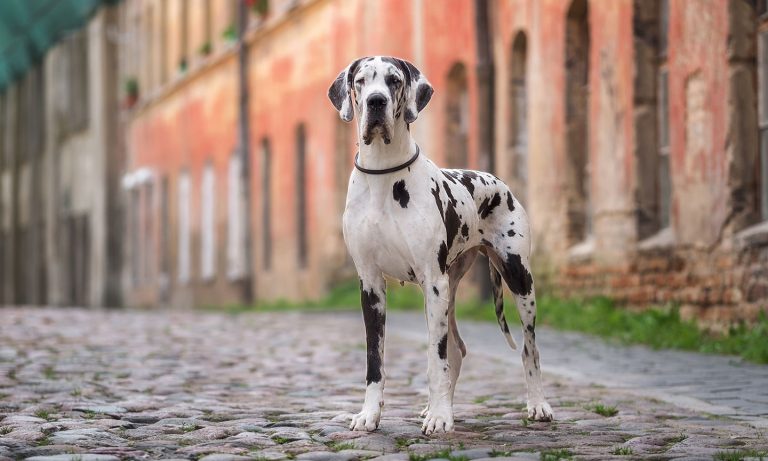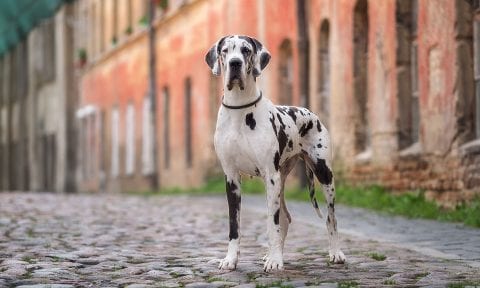Chihuahua vs Great Dane

Breed Snapshot
Best For
Equal parts affectionate, charming and mischievous, Chihuahuas are small, adaptable dogs who thrive in households (small and large!) with no other dominant pets. This toy breed's ideal pet parent provides companionship, care and lots of...
Equal parts affectionate, charming and mischievous, Chihuahuas are small, adaptable dogs who thrive in households (small and large!) with no other dominant pets. This toy breed's ideal pet parent provides companionship, care and lots of attention.
Chihuahua Temperament
Chihuahuas are charming little scamps with an eye for mischief and a sense of bravery that outsizes their physicality. They’re playful pups who enjoy a good romp or game, even though it may not last long (depending on their energy level). And they love to snooze on laps an...
Chihuahuas are charming little scamps with an eye for mischief and a sense of bravery that outsizes their physicality. They’re playful pups who enjoy a good romp or game, even though it may not last long (depending on their energy level). And they love to snooze on laps and cuddle—that is, after all, what they’re bred to do.
They like a lot of attention and are quite portable. But even though they’re easily carried, they do still need to learn how to walk on their own and be able to engage in normal dog behaviors, like sniffing, exploring and playing. In other words, don’t pop them in a purse or a stroller and tote them everywhere—unless, of course, it’s somewhere risky with lots of feet that could hurt a tiny paw, like an airport or street festival.
The Chihuahua dog breed is said to resemble a terrier with their demeanor and can become quite feisty, especially if they feel threatened. Some sites report that the Chihuahua bite force is 3,900 pounds per square inch (psi), but those so-called Chihuahua facts are wildly inaccurate, when a lion is only at 600 psi. In truth, Chihuahuas usually inflict no more than a Level 1-3 bite, with no puncture deeper than half the length of one of their canine teeth.
To help your Chihuahua puppy overcome a nipping or protective tendency, socialize them by safely and slowly introducing them to new people and places from the get-go and start training when they are young. Early training will also help this smallest of dog breeds become wonderfully friendly and receptive to all members of the family, including other pets.
Chihuahua Traits

Breed Snapshot
Best For
Great Danes are regal, gentle giants with a calm temperament and moderate exercise needs. They make wonderful family companions, and the amount of love they have to give is as big as they are. They're...
Great Danes are regal, gentle giants with a calm temperament and moderate exercise needs. They make wonderful family companions, and the amount of love they have to give is as big as they are. They're ideal for pet parents seeking pet who's as affectionate as they are, well, huge.
Great Dane Temperament
Don’t be fooled by the breed’s large size and assume this dog has an intimidating personality to match. Great Danes are, in fact, loyal and kind with happy personalities and they desire to always be near their people. Great Danes prefer to keep you in their line of...
Don’t be fooled by the breed’s large size and assume this dog has an intimidating personality to match. Great Danes are, in fact, loyal and kind with happy personalities and they desire to always be near their people. Great Danes prefer to keep you in their line of sight, and you can forget about eating alone or cooking a meal by yourself ever again!
Great Danes can sometimes come off as shy, aloof or reserved. Socializing your Great Dane puppy at an early age will help them become more comfortable around new people and other dogs. They have a deep, powerful bark that can be intimidating to visitors, but this is a case where the bark is really worse than the bite.
The Great Dane was originally bred to be a hunting dog. Today, they mainly fill the role of “lovable family member.” And don’t be surprised if your Great Dane attempts to be a lap dog—the results can be hilarious.




